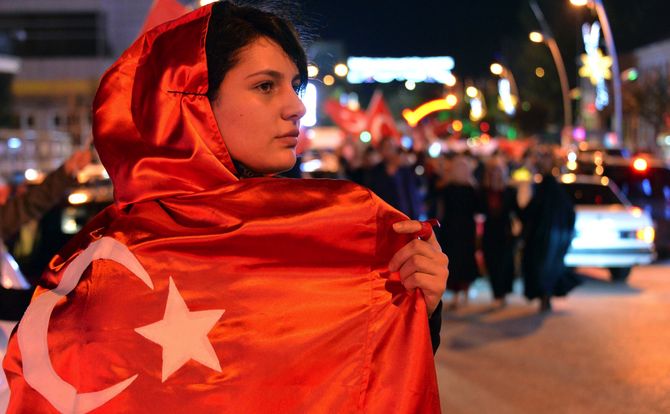Turkey’s elections
Before leaping at the opportunity to question the results of 2018 elections in Turkey, politicians and media in Europe and the U.S. would do well to consider the basis of President Recep Tayyip Erdogan’s appeal. Until Western leaders take into account Turkey’s emerging regional role, they cannot hope to have any influence on its politics.

Turkey has voted. For several reasons, this election was important. It is the first to be held after Turkey changed its constitution into that of a presidential republic, abolishing the office of Prime Minister and strengthening the power of the head of state. It was also the first time in Turkey that presidential and parliamentary elections were held simultaneously.
The country finds itself in a difficult position geopolitically and economically. Turkey has had to reassert its position as a regional power. Its strong secular system, introduced by modern Turkey’s founder Kemal Ataturk in the 1930s, must today be balanced against Islam. All these developments necessitated changes in political doctrine.
Turkey was always a loyal and crucial member of NATO, but increasingly has had to initiate its own regional strategies, which do not necessarily match Western interests. For their part, the United States and the European Union have not taken Ankara’s needs sufficiently into account. By ignoring many of Ankara’s interests, the EU and its member states have lost all possibility of influencing Turkish politics and governance. President Erdogan and his system got the blame for all shortcomings, while their achievements and Turkey’s legitimate interests were overlooked.
In the days before the vote, one could detect a certain satisfaction among some observers and media in Europe and the U.S. that President Recep Tayyip Erdogan would find it hard to win the majority needed to be reelected in the first round. There was also a lot of wishful thinking that the ruling Justice and Development Party (AKP) would fail to retain its majority in parliament together with its coalition partner, the Nationalist Movement Party (MHP).
A majority of Turkey’s 56 million voters confirmed their trust in the president and his government.
But as has so often been the case, the results surprised the experts. A majority of Turkey’s 56 million voters confirmed their trust in the president and his government. This makes Mr. Erdogan the country’s first elective chief executive with the wide powers granted under the newly amended constitution. While the AKP itself appears to have fallen short of an outright majority, it easily passed the 50 percent hurdle with its minority coalition partner.
Mr. Erdogan’s leading challenger, Muharrem Ince, should also be congratulated for his remarkable result of 31 percent, according to the early, incomplete returns. This should be counted as a success for himself and his Republican People’s Party (CHP), which should make for an active opposition and healthy political diversity.
The international community would do well to respect these results. The Turkish people have the right to choose their own government, and it is up to this elected government and parliament to act in the best interests of the country and its people. This decision on what is best for Turkey needs to be made at home, and not by political missionaries abroad.
